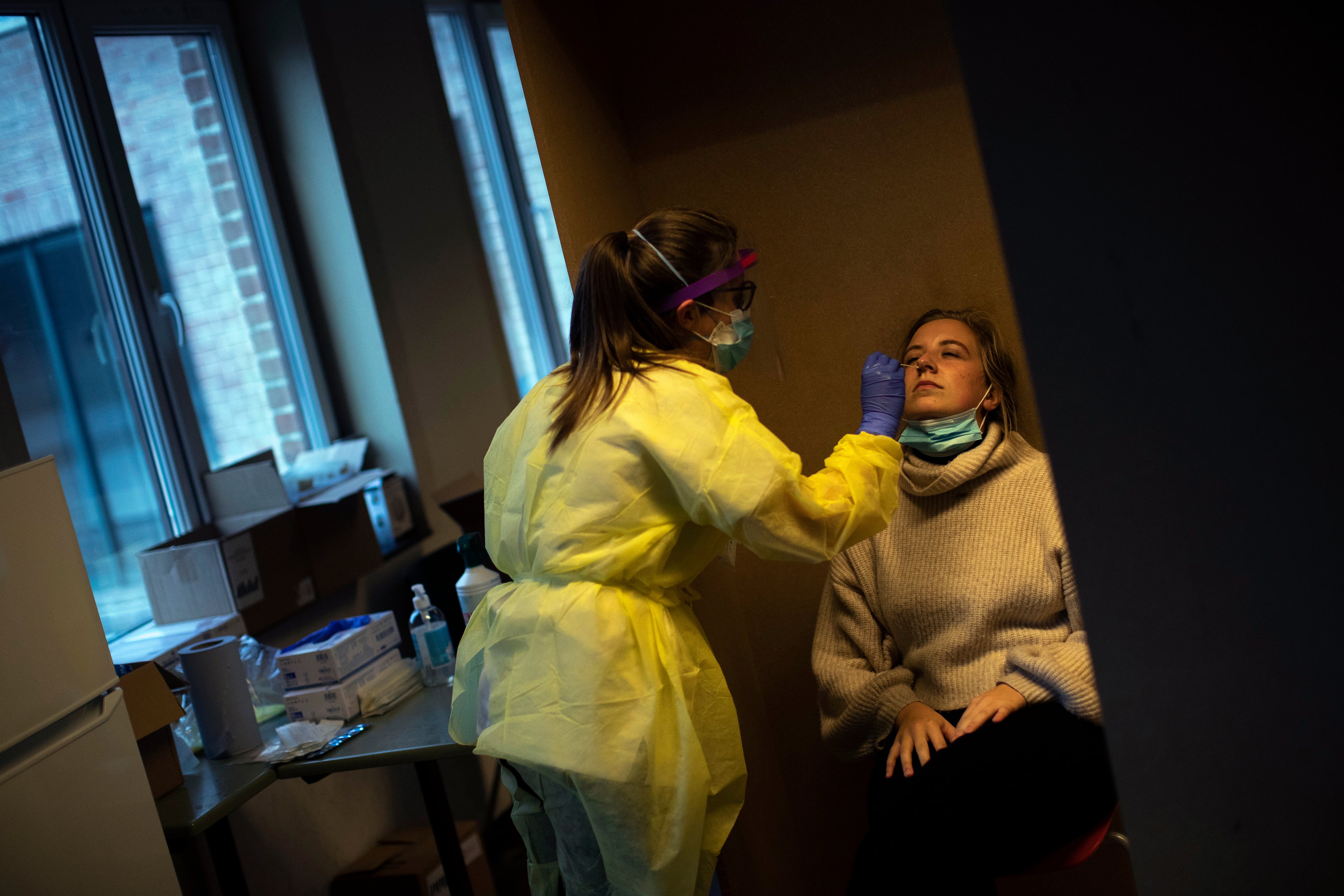Belgium fears ICU beds could reach capacity next month
Belgium’s intensive care units will hit capacity by mid-November if the number of new coronavirus cases continue to soar at the same pace, according to the country’s health authorities

Your support helps us to tell the story
From reproductive rights to climate change to Big Tech, The Independent is on the ground when the story is developing. Whether it's investigating the financials of Elon Musk's pro-Trump PAC or producing our latest documentary, 'The A Word', which shines a light on the American women fighting for reproductive rights, we know how important it is to parse out the facts from the messaging.
At such a critical moment in US history, we need reporters on the ground. Your donation allows us to keep sending journalists to speak to both sides of the story.
The Independent is trusted by Americans across the entire political spectrum. And unlike many other quality news outlets, we choose not to lock Americans out of our reporting and analysis with paywalls. We believe quality journalism should be available to everyone, paid for by those who can afford it.
Your support makes all the difference.Belgium’s intensive care units will hit capacity by mid-November if new coronavirus cases continue to soar at the same pace, the country’s health authorities warned Wednesday.
The latest COVID-19 figures published Wednesday by the national institute of public health show that Belgium has seen 7,360 new coronavirus cases over the last 24 hours.
All virus indicators have deteriorated in recent weeks as the new surge in infections is also being reflected in rising hospital admissions and deaths. There were 1,621 COVID-19 patients hospitalized in Belgian hospitals as of Wednesday, 281 of them in intensive care, while 33 deaths were recorded,
“We will reach our maximum capacity of 2,000 beds by mid-November in ICUs if this kind of increase continues,” COVID-19 crisis center spokesman Yves Van Laethem said. “We absolutely need to avoid this scenario.”
Van Laethem said 152 new patients were admitted every day in Belgian hospitals over the past week, up 80%. The number of daily deaths rose 56% in that period.
“It demonstrates the power of this exponential growth," he said. “It starts slowly, grows little by little, then finishes with an explosive situation."
One of the hardest-hit countries in Europe, Belgium last week introduced a series of restrictive measures aimed at slowing the pace of new infections that include local curfews, closing bars in Brussels for at least a month and limiting indoor sports activities.
Van Laethem said the country is currently the second-worst in Europe in terms of new coronavirus infections, behind the Czech Republic.
So far, the virus has killed more than 10,200 people in Belgium, a nation of 11.5 million that hosts European Union headquarters. On average, more than 5,000 new daily cases have been diagnosed last week, an increase of 93% compared to the previous seven-day period. The number of new infections is now doubling every seven days, Van Laethem said.
“But it’s not time for panicking, we are not in the same situation as we were in March-April. Stricter measures can help us modify the curve,” he said.
Health experts have urged residents to limit social encounters and to use a tracing app. They said about 1 million residents have downloaded the Coronalert app so far, about 15% of smartphone users.
___
Follow all AP news coverage of the coronavirus pandemic at http://apnews.com/VirusOutbreak and https://apnews.com/UnderstandingtheOutbreak